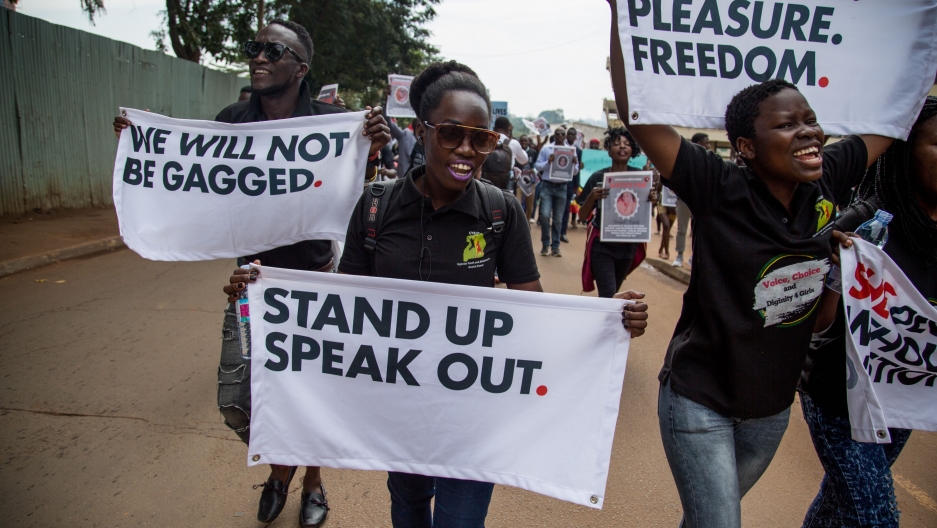8 out of 10 Ugandans believe: the news media should be constantly investigating and reporting on government mistakes and corruption (77%); that criticism of leaders is useful and helps correct mistakes (80%); and 7 out of 10 think that government should only be able to restrict access to information vital for national security (72%) compared to 28%who think government should be able to restrict access to any information even if that allows it to cover up wrong-doing.
Citizens are even more assertive about their own right to criticise: an MP for not caring about their constituents (94%); bad decisions by government (89%); and the President (84%). Nonetheless, citizens do not feel like they have this right in practice: 3 out of 10 feel free to criticize the President (31%), 4 out of 10 feel they can speak badly about the government (37%), and 6 out of 10 (55%) about their MP. Citizens are now less likely to feel free to criticize any leader compared to 2017.
These findings were released by Twaweza to mark World Press Freedom Day 2021. The insights are based on data from Sauti za Wananchi, Africa’s first nationally representative high-frequency mobile phone survey. The findings are based on data collected from 1,500 respondents across Uganda from October to December 2020.
Apart from strong support for the accountability function of media, citizens are more mixed when it comes to media freedoms around content and format. Six out of ten say the media should be able to publish any views and ideas (57%) while 4 out of 10 (43%) say government should be able to prevent the publication of harmful content. A similar share (61%) say anyone should be able to become a journalist while 39% say the profession should be licensed by government. And 63% want stations to make their own news shows but a full 37% want government to provide a daily news bulletin directly to all media.
Despite this, Ugandans still make use of traditional media and maintain high levels of trust in the content. Radio continues to dominate with 72% naming it as their main source of information, followed distantly by TV at 16%. TV is named more by urban, wealthier and more educated Ugandans, social media by younger and wealthier citizens and word of mouth by poorer, older or less educated citizens. Since 2017 we see slow but steady declines in the use of radio and increases in the use of TV.
When it comes to trust, 6 out of 10 Ugandans (61%) trust what they hear on the radio as do 45% trust what they see on TV. These levels of trust are consistent over time. However there is declining trust in what is shared at public meetings (58% to 37%), from friends and family (28% to 22) and on social media (10% to 4%).
Marie Nanyanzi, Sauti za Wananchi Officer at Twaweza, said “Citizens are clearly in support of media holding government to account. They are also clear that they should be allowed to criticize the government and individual officials especially to draw attention to mistakes and wrong-doing. However, a significant minority of citizens appear to support of government regulation and control over media content.”
Violet Alinda, Twaweza Uganda Country Lead and Director of Voice and Participation, added “On this World Press Freedom Day, we can take time to reflect on the role of the media in our society. Sauti za Wananchi clearly shows us that citizens have mixed views on the different facets of media freedom. Media professionals, including editors, need to ensure they build a larger constituency of support for their content and free operation if they are to fulfil their critical role in society.”
“This is particularly critical,” she continued,”at this time when complacency has set in while Uganda continues to grapple with Covid-19 and a potential new wave of infections. The media have a vital role to play in ensuring citizens stay safe.”
